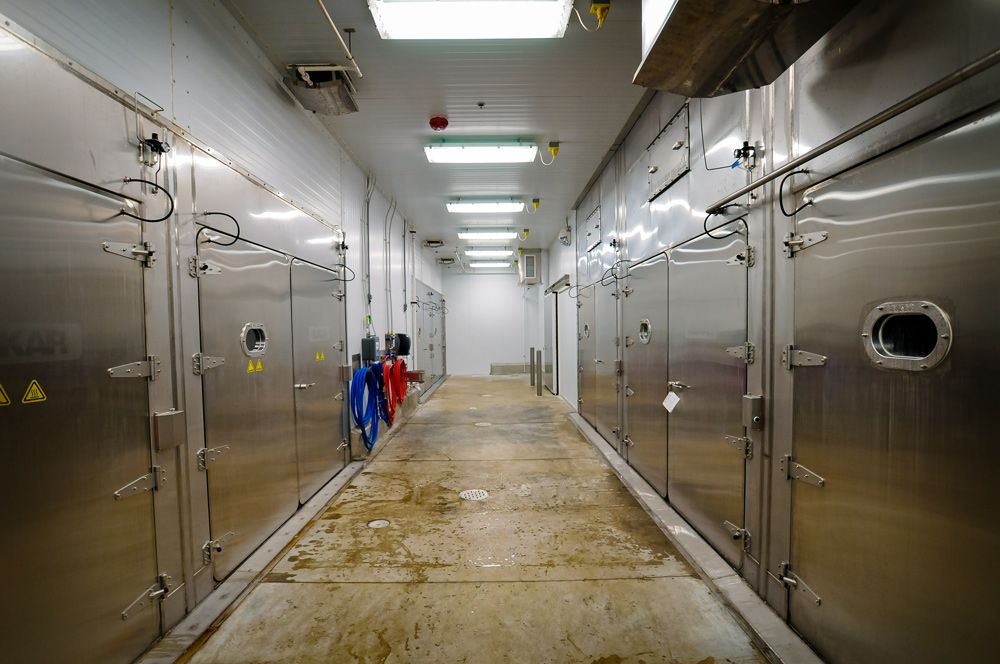Smith Provision Meat Processing Facility
New facility for premium RTE meat producer increases shelf life and food safety.

It's a very, very clean environment, the number of aerobic bacteria and mold has gone down dramatically and we're getting an extended product shelf life.
Project Services
Project Highlights
-
Facility designed for raw processing, cooking and packaging of sausage and RTE meat products
-
New blast chillers reduce product chill time to improve food safety and provide a physical barrier to separate the raw from RTE finished products
-
Positive air flow from ready-to-eat rooms to raw preparation rooms reduced airborne bacteria
50,000
5
4
Designed with room to grow, this meat-processing facility has helped the owner boost sales and extend product shelf life
Mike Weber, President of Smith Provision Co. needed to start from scratch. The producer of premium quality wieners, sausages, deli meats, bacon and hams had outgrown its Erie, PA facility. Built in 1957, Weber admits the original structure—“a conglomeration of rooms” --was not designed with food safety as a priority. With this issue becoming an increasing concern, Weber came to Food Plant Engineering for help. “We wanted to design food safety and an efficient layout into the whole package,” he says. Food Plant Engineering’s knowledge of the industry and attention to detail helped Weber achieve his goal on time and on budget.
Proof of Improvement
Food Plant Engineering’s team designed a hygienic facility by reducing the risk of cross contamination through air flow, improving product flow, segregating personnel, and closely controlling the post-cook environment, says Weber. “It’s a very, very clean environment,” he notes, and he has the data to prove it. “The number of aerobic bacteria and mold has gone down dramatically,” he says. Spoilage complaints dropped, and “we’re getting an extended (product) shelf life,” he adds.
More Customers
Smith Provision products are carried by groceries and specialty retailers than desire quality products and service. When prospective and current customers visit the Smith facility, they feel good about carrying Smith products. “The impression we’re leaving is a higher level,” Weber states. “You can talk the premium game but you have to see that in action. We blew our competitors out of the way,” he says of the company’s record-breaking year since moving into the new facility. He attributes a boost in private label customers largely to “the plant and food safety systems in place.”
Why Food Plant Engineering?
Food Plant Engineering boasts a strong team, notes Weber. They “just had a great feel and understanding of the industry,” he adds. “We didn’t have to educate them about what’s important and what’s not.” Additionally, Food Plant Engineering’s engineers, architects and designers helped Weber plan for the future. “They worked with us on where we wanted to be in five to 10 years,” he says.
Weber also cites the specificity of Food Plant Engineering’s construction drawings and exemplary follow-up even after construction as strengths of the design team. The most tangible benefit to working with Food Plant Engineering, however, is the new facility. “It’s efficient from a labor point of view and from a utility point of view,” says Weber. “Were we to expand, our first phone call would be to Food Plant Engineering. We’ve had a great relationship.”